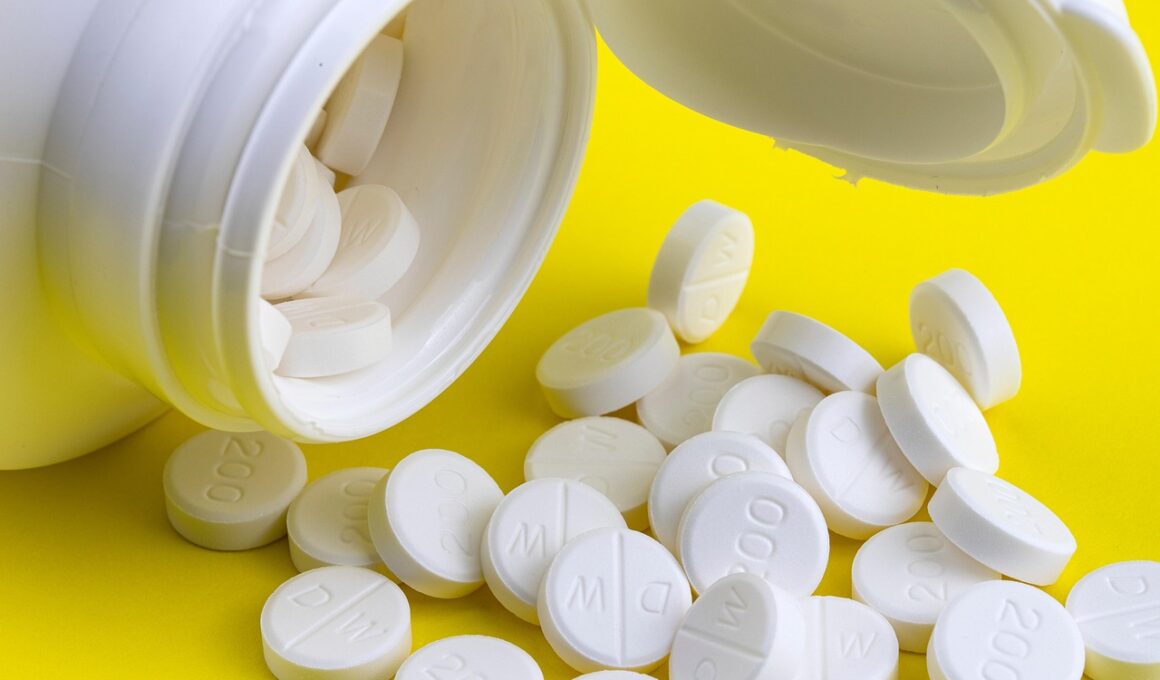Top Medications for Dog Hookworm Treatment
Understanding hookworms is vital for effective dog parasite control. These tiny, blood-sucking parasites can cause significant health issues in dogs and are particularly dangerous for puppies. Hookworms attach to the intestinal wall and feed on their host’s blood, leading to anemia and malnutrition. Symptoms can include diarrhea, weight loss, and lethargy. It’s essential to treat hookworm infestations promptly to prevent serious health complications. Various medications are available to combat these parasites effectively. Nevertheless, consulting with a veterinarian is critical to ensure you select the best treatment option for your dog. Proper diagnosis and treatment planning can enhance your dog’s recovery process. Some medications work more efficiently when administered as a preventative measure. Health checks and consistent deworming schedules are crucial steps in ensuring your dog remains free from hookworms. Additionally, maintaining a clean environment for your dog minimizes the risk of reinfestation, as hookworm larvae can survive in environmental conditions. Staying informed about parasite control will improve the overall wellbeing of your dog and increase their quality of life. Understanding the modes of transmission will also help in prevention efforts against hookworms.
When discussing dog hookworm treatment, two commonly prescribed medications are pyrantel pamoate and fenbendazole. Pyrantel pamoate is effective against adult hookworms and is widely used due to its safety profile. It works by paralyzing the worms, enabling them to be expelled from the intestines naturally. This medication is often provided as a liquid or tablet and can be administered as part of routine deworming schedules. It’s essential to follow your veterinarian’s dosage instructions to ensure the medication is effective and safe for your dog. In contrast, fenbendazole treats various parasitic infections, including hookworms. It disrupts the parasites’ metabolism, ultimately leading to their death. Fenbendazole is usually given over a few days, depending on the severity of the infestation. Some dogs may require multiple doses to eliminate the worms fully. Discussing any underlying health conditions with your veterinarian before starting treatment is necessary. Regular veterinary check-ups can help detect hookworm infections early, enabling timely intervention. Both medications have proven effective; however, prevention remains the best approach to keeping your dog healthy and parasite-free.
Natural Remedies and Preventative Measures
In addition to medications, you can consider natural remedies for dog hookworm treatment. Pumpkin seeds are known for their deworming properties thanks to the chemical compound cucurbitacin, which can paralyze parasites and eliminate them from the gastrointestinal tract. Adding crushed pumpkin seeds to your dog’s food may help with prevention. Diatomaceous earth is another natural option that can be beneficial but must be food-grade to be safe for pets. It works by dehydrating parasites, making it harder for them to survive. However, it is crucial to consult your vet before incorporating any natural remedy into your dog’s treatment plan. Alongside natural treatments, ensuring a hygienic living environment is paramount. Regularly cleaning your dog’s bedding and removing feces helps minimize the chance of hookworm infection. Additionally, consider monitoring your dog’s diet and ensuring they receive proper nutrition to maintain a robust immune system. Regular vet visits to check for parasites will positively impact overall health, making your dog more resistant to infections. A proactive approach will help keep your furry friend safe and healthy from harmful parasites.
Keep in mind that hookworms are transmitted through contaminated soil or feces, underlining the importance of practicing good hygiene. Educating yourself on how hookworms thrive and multiply is equally essential. Hookworm larvae can survive for weeks in the environment, so yard maintenance and regular clean-up are vital. Furthermore, make sure your dog stays on a regular deworming schedule as recommended by your veterinarian. Observing any unusual signs or symptoms is crucial for early detection and intervention. If you suspect your dog has hookworms, take action immediately by consulting your veterinarian. They can perform tests to confirm the presence of hookworms and recommend the appropriate treatment. Ignoring a potential infestation could lead to severe health consequences for your dog. Regular health checks will provide you with peace of mind, ensuring your dog stays healthy. Maintaining a well-balanced diet supports their immune system against several infections, including hookworms. A responsible pet owner prioritizes preventative measures to guard against common parasites. Staying informed about hookworms will enhance your ability to protect your dog effectively.
Post-Treatment Care and Monitoring
Following successful hookworm treatment, it’s vital to monitor your dog closely for any signs of recurrence or complications. Regular check-ups with your veterinarian will ensure any potential issues are identified and addressed promptly. After treatment, providing your dog with a nutritious diet will support recovery and overall health. Generally, dogs affected by hookworms require time to rebuild iron levels and regain strength. Keeping an eye on their energy levels and appetite may indicate whether your dog is recovering well. In some cases, your veterinarian may recommend follow-up fecal examinations to ensure the treatment was successful and no hookworms remain in the system. It can sometimes take a few weeks to completely eliminate the infestation; therefore, patience is essential during this time. Providing a safe, clean environment will prevent reinfection. Engaging your veterinarian during this stage can offer additional tips for promoting your dog’s health. If other pets are in your home, ensure they are also dewormed to eliminate any risk of spreading parasites. Educating yourself about potential risks can significantly enhance your dog’s recovery and lead to a healthier life.
Ultimately, recognizing the seriousness of hookworm infestations is paramount for all dog owners. Hookworms can lead to anemia and other serious health concerns beyond simple discomfort. Their presence often goes unnoticed until noticeable symptoms arise, emphasizing the need for regular veterinary consultations. Continuous education on parasite control will allow pet owners to remain proactive. Consult your veterinarian to assess your dog’s risk factors and establish an appropriate preventive care plan. Vaccination schedules and parasite prevention should align with your specific environment, as certain areas pose higher risks for hookworm infections. Additionally, consider discussing dietary recommendations with your vet. A balanced diet not only enhances overall health but also strengthens immunity, making your dog less susceptible to infections. Utilizing products with proven efficacy and safety is crucial in managing your dog’s health. Regular cleaning practices and monitoring outdoor activities can substantially decrease the likelihood of hookworm transmission. Emphasizing the importance of preventative health measures will ensure a long and healthy life for your dog. Understanding the treatments available equips pet owners to address any hookworm risks effectively, ensuring a happy, healthy furry companion.
Conclusion
In conclusion, addressing hookworm infestations in dogs requires a combination of effective treatment, preventive strategies, and ongoing care. Awareness of available medications, like pyrantel pamoate and fenbendazole, is essential for effective parasite control. Furthermore, incorporating natural remedies, maintaining proper hygiene, and scheduling routine vet visits can significantly reduce the risk of hookworm reinfections. After treatment, monitoring means maintaining open communication with your veterinarian about any changes or concerns. Utilization of preventive measures will protect your furry friend from future health risks associated with parasites. Always prioritize your dog’s immune health through proper nutrition, preventive care practices, and environmental cleanliness. The balance between effective medication and diligence in maintenance will yield the best results for your dog’s health. An informed pet owner is a responsible owner, enabling you to provide the best care possible. Regular education and awareness of dog hookworm treatment foster a nurturing environment and can greatly enhance the quality of life for your companion. With diligence and proper oversight, you can successfully manage your dog’s health, ensuring they continue to thrive free from hookworms.
Moreover, sharing knowledge about hookworm treatment among fellow pet owners can create a community of informed caretakers dedicated to their dogs’ health. Forming a support network where experiences and insights are exchanged empowers others to take proactive steps against parasite infestations that threaten their dogs’ well-being. Your awareness can spark discussions about proper care techniques and medication alternatives that are effective and safe. Joining social media groups or pet community forums might provide additional insights and resources regarding dog hookworm control. Informal connections often yield surprising solutions based on the shared knowledge of actual pet experiences. Ultimately, every action taken towards enhancing awareness about dog health care can lead to better living standards for pets everywhere. Leveraging technology will allow more people to access valuable information on medications and treatments in this regard, thereby ensuring dog’s overall well-being. Remember that your experiences matter and can provide guidance to others. By fostering informed dialogue about hookworms and prevention, you will make the world a safer place for dogs. Your commitment to facilitating knowledge sharing can have profound effects on the broader canine community.


